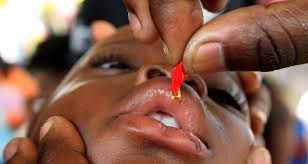CEO of the Bill and Melinda Gates Foundation on how the polio eradication effort was an important tool in fighting the outbreak
One of the scariest moments of last year’s Ebola outbreak for Susan Desmond-Hellmann, CEO of the Bill and Melinda Gates Foundation, was when Ebola arrived, by way of a business traveler, in Lagos. That the devastating and highly infectious disease had surfaced in the Nigerian megacity—an international hub and home to some 20 million people—posed any number of troubling scenarios.
“For people like me who followed Ebola, we weren’t sleeping at night specifically because of Nigeria,” says Desmond-Hellmann, a former cancer drug developer who joined the Gates Foundation, one of the world’s leading public health donors, in early 2014. She was speaking Wednesday morning at Fortune’s Most Powerful Women Summit in Washington, D.C.
Yet, it’s much to the credit of her organization’s work—particularly the “polio surge” Gates and other partners, including Rotary and WHO, had running in Nigeria—that the epidemic was so quickly stamped out in the country. Nineteen people died of Ebola in Nigeria, compared to the thousands in neighboring West African nations.
The difference: Nigeria had a health infrastructure that was designed to eradicate polio. How did that become one of the most important and lucky breaks in the fight against Ebola?
Until recently, Nigeria was one of three countries where polio was endemic—Afghanistan and Pakistan remain the other two. A couple years ago, Gates and its coalition of partners committed to “a massive global effort” to try to eradicate the disease in Nigeria. If successful, Desmond-Hellmann explains, there would be two wins: One, the African continent would be much safer from polio. Two, there would be a game plan to rid Pakistan and Afghanistan of the disease. And it turns out there was a third win as well.
The Ebola outbreak in Nigeria, tragic and terrible as it was, proved the value disease eradication programs can bring to health systems around the globe, says Desmond-Hellmann. She notes that some in the public health community argue that resources invested in one-off disease eradication campaigns would be better spent building health systems.
But in the case of Nigeria, the broader value of such a program is clear: Within 24 hours of Ebola’s arrival in the country, says Desmond-Hellmann, “the polio emergency operations center was turned into an Ebola emergency operations center. Those assets, those trained people, that infrastructure, that ability to understand what an epidemic is, to do contract tracing, all the things they needed to do—they immediately stamped out Ebola…The scope of it would have been so much worse.”
The “polio surge” has also effectively ended polio. In July, Nigeria passed one year without a case of the disease, and the country has bden cleared frim the endemi list. That’s great news, but too early to celebrate, says Desmond-Hellmann. A country must go three years without a case to be certified as polio-free.
“We’re not putting on our party hats yet.”

